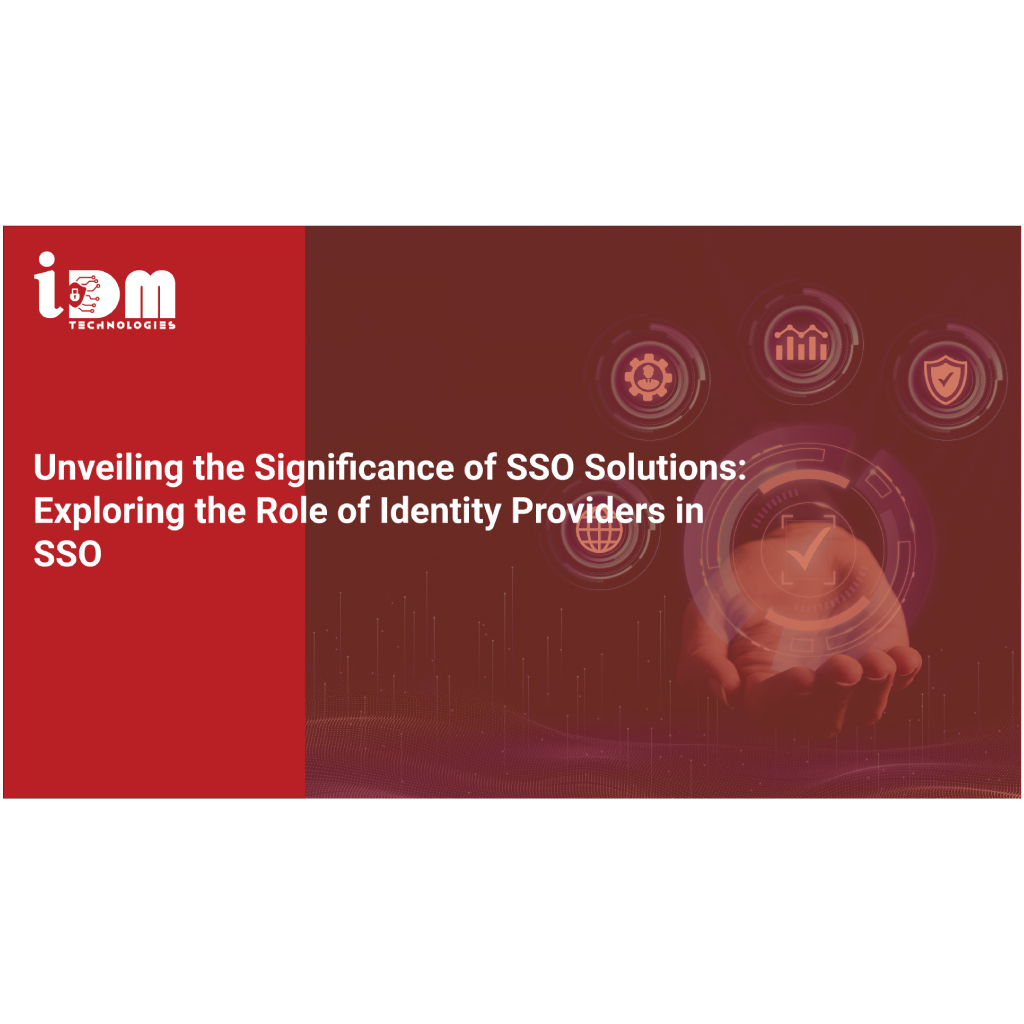

SSO solutions have become a transformative force for organizations seeking enhanced security and streamlined user experiences in the ever-evolving cybersecurity landscape. A pivotal element within SSO solutions is the Identity Provider (IDP), a concept that serves as the cornerstone for secure and efficient authentication processes. In this blog post, we will take a closer look at SSO solutions, emphasizing the role and importance of an identity provider.
SSO revolutionizes the authentication process by enabling users to access multiple applications using a single set of login credentials. Rather than remembering numerous usernames and passwords for various applications, users only need to authenticate once to gain access to all interconnected systems. This not only enhances user convenience but also significantly improves security by reducing password-related vulnerabilities.
SSO solutions act as the conduit that seamlessly connects users to multiple applications. These solutions eliminate the need for users to log in separately to each application, simplifying the login process and enhancing overall productivity. With the surge in cloud-based services and the proliferation of Software-As-A-Service (SaaS) applications, SSO has evolved into a crucial tool for efficiently managing user access.
At the core of any SSO solution lies the Identity Provider. An Identity Provider serves as a trusted entity responsible for authenticating and verifying the identity of users. It functions as a centralized authentication service, issuing authentication tokens following a user’s successful login. These tokens serve as proof of authentication and are recognized by connected applications, enabling users to access multiple services without the need for repeated logins.
It is the primary responsibility of an Identity Provider to verify a user’s identity. This involves validating usernames and passwords or employing advanced authentication methods such as multi-factor authentication (MFA).
Upon successful authentication, the IDP issues tokens containing information about the user’s identity and authentication status. These tokens function as the user’s digital credentials and are presented to applications for access.
Through the IdP, multiple applications can be authenticated simultaneously, facilitating seamless SSO. Authenticated users can navigate between interconnected applications without re-entering credentials.
IDPs play a pivotal role in user management, enabling administrators to control access, assign roles, and revoke permissions. This centralized control simplifies the task of managing user identities across various platforms.
In the intricate realm of SSO solutions, the Identity Provider emerges as the guardian of user identities, ensuring secure and streamlined access to multiple applications. A comprehensive understanding of the role and functions of an IdP is imperative for organizations aiming to implement robust SSO solutions. By embracing SSO and harnessing the capabilities of IdP, businesses can elevate security measures, enhance user experiences, and confidently navigate the complexities of the digital landscape. Embrace the future of authentication with SSO solutions and empower your organization with seamless, secure access to the digital world.
Our experts will be in touch with you shortly.